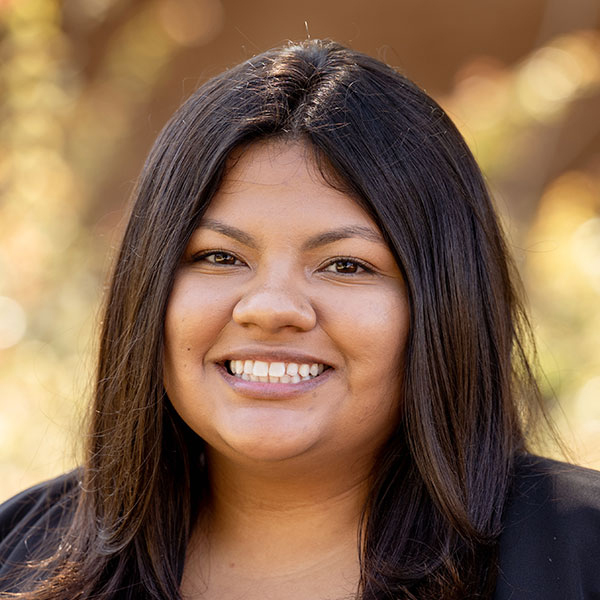5 Tips for Applying to College
See what colleges look for and learn how to stand out.
Show them what makes you shine.
What are colleges and universities looking for in applicants? Our very own admissions team from Cal Lutheran has shared their personal tips to help you create a great impression no matter where you apply.

In This Guide:
1. Pay attention to every detail
Just like an important school assignment, applying to college means following instructions closely. Be sure to read everything that is provided to you, especially essay prompts. Every detail of your application is under scrutiny, so your final product should be free of mistakes, clearly formatted, and carefully polished to represent you well.
Answer ALL questions, including the optional ones
Every application question is an opportunity for you to provide details about yourself that are relevant to the institution you are applying to. In general, submitting a complete application shows admission counselors that you put in the effort to succeed.
Don’t use nicknames
The name that you use on your application should be consistent with the name that you use on transcripts and test scores. Be consistent with the version of your name that you use, so that you don't confuse people who read your application.
Use a professional email address
Applying to college is serious business — and your email should be serious too. If you don't already have an email address that looks professional, this is a good time to create one. Consider something simple in the format of "FirstnameLastname@gmail.com".
Proofread your application and essay before submitting them
Many college applicants submit materials that have multiple typos or errors. It is critical that you set time aside time aside to read your written submissions thoroughly and ask 2-3 trusted people to review it as well. Fresh eyes may catch things that you didn't yet notice.
2. Express yourself authentically
College applications typically give you multiple opportunities to express yourself through different written prompts. Whether you are asked to write a paragraph, a full-length essay, or other pieces of writing, it is important that you use your original style of communication and bring out your individual qualities.
Be yourself
Are you funny? Be funny. Are you analytical? Be anaytical. Demonstrating self-awareness and showcasing your genuine qualities should be a general goal for your application. Of course, make sure that it is a polished and professional version of yourself that you are communicating to admission counselors.
Write in the active voice
Don't just tell about yourself — show your qualities through concrete examples that follow the STAR format (Situation, Task, Action, Result). Make your stories meaningful by showing how the experience led to personal growth, and ultimately, how that relates to the academic opportunity you are applying to.
Use vivid storytelling techniques
Written prompts give you creative liberty to take different approaches. Consider starting your essay with an introduction that pulls the reader into a specific moment or offers an attention-grabbing statement to set the tone. The more memorable your writing is, the more you will give your reader a positive impression.
The college application process is holistic — we study each student's entire application to create a talented and diverse incoming class that has both depth and breadth. We consider your academic profile, areas of interests outside the classroom, and global perspective. Ultimately, we want to understand the voice you will bring to our campus community and the potential impact you may have.
Falone Serna
Dean of Undergraduate Admission for Cal Lutheran
3. Emphasize extracurriculars
Although academics are part of the college admissions process, most institutions are also interested in your involvement outside of the classroom. Expand on your extracurriculars with memorable essay stories.
Brainstorm how you have spent your time
Your college preparation is more than just your grades — it is a collection of varied activities and experiences. Consider the many ways you have spent this time, whether it was through internships, research, community service, athletics, or other group involvements.
Present your passions
The nature of your interests is less important to institutions than the fact that you are someone who plays an active role in a community. Show participation in area(s) of passion, even if it is not academically relevant.
Describe a time of great challenge
Being a college student is challenging, so admission counselors look for evidence that show how you have persevered through difficult circumstances. You can describe rigorous courses you have taken (including AP and Honors courses) or other challenges you overcame.
Activities that admission counselors love to hear about:
|
|
Athletic teams or achievements you have been a part of |
|
|
Creative projects or instruments you have learned to play |
|
|
Entrepreneurial endeavors you have spearheaded |
|
|
Jobs or side gigs you have done (e.g., babysitting) |
|
|
Volunteer roles or service trips you have participated in |
|
|
Any meaningful life experience |
4. Choose references wisely
Almost every college application asks for information from 3-5 references. This helps admission counselors see what others have to say about you. In most cases, a "reference" is provided as a letter of recommendation that your reference writes for you. Typically, you are given specific instructions and aren't allowed to view the letter.
Build and maintain relationships with teachers, supervisors, coaches, and counselors
Close connections make amazing references for your college application. The better someone knows you, the better they can speak in detail about your strong character and judgment for collegiate success. Choose people who oversaw your work and can provide specific examples of your best qualities.
Avoid using family members and friends as references
It reduces the amount of trust an institution will have in the legitimacy of your recommendation. The nature of your relationship with the reference should always be based on a role you served in, either as a student, an employee, or a team member of some kind.
Give your references plenty of notice
Don't wait until the last minute to ask someone to serve as your reference. This is an aspect of your application that requires advanced planning. Ask references 3 months in advance so that they have enough time to respond to your initial request and submit the necessary materials on time.
Months of advanced notice
Back up references if someone says no
Reference who knows you academically
Family/friend References
Think about which teachers really know you best. You may be a science teacher’s favorite who aces physics and chemistry courses. But maybe the history teacher who encouraged you to join the debate team and traveled with you to debate meets over the last two years is the better reference.
Aly Hernandez
Senior Admission Counselor for Cal Lutheran
5. Know your deadlines
Did you know that there are multiple application deadlines to choose from, when you apply to college? Depending on your personal goals for your college search process, be strategic in your timing of applying.
Option 1: Early Decision
If available, you may apply Early Decision to one institution. If you are granted admission as an Early Decision applicant, you must attend because it is a binding agreement. If you applied to other institutions in regular admission, you must withdraw those applications.
Option 2: Early Action
Early Action admission is non-binding and you can confirm your decision to attend up to the May 1 National Reply Date. Applying in Early Action will allow you to receive your decision earlier and ensure you are eligible for the highest scholarships available.
Option 3: Regular Decision
Regular Decision is a good option if you become interested in a school later in the process. You can confirm your decision to attend up to the May 1 National Reply Date.
Pro Tip
Looking to start saving for your college journey ahead? Check out our guide on financing your education: How to Afford College
Want to learn more?
Complete this form and we'll add you to our email list.
We'll also keep you updated on admission deadlines and tell you more about our academics and campus life.



